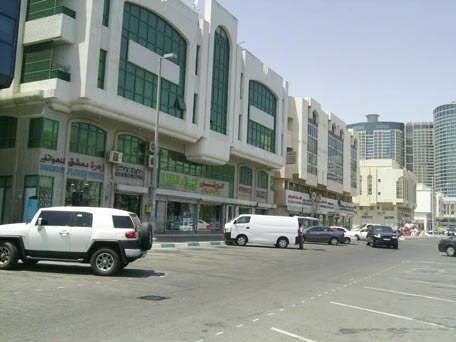- City Fajr Shuruq Duhr Asr Magrib Isha
- Dubai 04:31 05:49 12:21 15:48 18:47 20:05

Abu Dhabi’s landlords appear to have run amok as they stampede to demand a sharp increase in shop rents, with the rent of some shops nearly quadrupling.
Mobile phone shops on Defence Road were the main victim as most of them have been asked to pay much higher rents or leave.
One shop, Al Sultan Mobiles, said it had been notified that its annual rent had been raised from Dh75,000 to Dh281,000 a year.
“I have just received a letter from the landlord that my shop’s rent will be raised to Dh281,000 from Dh75,000 a year…the letter says that I must abide or I have to evict the property,” the shop’s owner Sultan Al Hariri said.
“This is a 400 per cent increase…can you believe it…we don’t mind a reasonable increase but not this…the problem there is no protection law for us in the absence of legislations regulating the property market and after the removal of the five per cent cap on rent increases in Abu Dhabi…we are the main victim of this decision.”

Abu Dhabi government decided to remove an annual five per cent cap on rent increases in late 2013, prompting many landlords to sharply boost rents of their property.
Real estate agents said thousands of apartment tenants and shop owners in Abu Dhabi have received notification of rent increases since the cap was abolished.
While the rent of apartments and villas has risen by between 10 and 30 per cent, the rent of some commercial property has jumped by at least 100 per cent.
“We have just received a letter from the owner increasing the rent of our shop from Dh25,000 to Dh80,000,” said Fadi al Dirawi, a mobile phone dealer on Defence Rd.
“I don’t know how we are going to manage…this is an increase of more than 300 per cent…it seems these landlords think we are millionaires.”
Some dealers said they had been to the department of property disputes in Abu Dhabi but were told that they could been given a one-year grace period.
“They said that after one year, we have no choice but either to pay the new rent or evict the property…of course we can’t leave because we have invested large sums in these shops, including furnishing and decoration,” said Jamil Ayyash, a dealer.
Hariri said his shop is around 38 square metres and that the new increase means that the rent of one square metre is now nearly Dh7,400 compared with Dh2,000 before.
Another mobile shop, Al Asala, said its rent had been revised up to Dh320,000 from Dh100,000 while the annual rent of the nearby Al Andalus shop has been increased to Dh200,000 from Dh80,0000. Mahmoud Jaber shop was also told its rent has been increased to Dh145,000 from Dh60,000.
A nearby key cutting shop was notified of a rent increase to Dh140,000 from Dh65,000 and this has prompted its owner to turn it into a mobile phone shop. “The key cutting business has been down so there is no way that we could afford the new rent…hence we have decided to switch to the mobile phone business,” its Egyptian owner said.
Mobile phone dealers accused the landlords of being greedy by demanding such big rent increases but owners defended their decision as reasonable.
“We have not increased shop rent in my building for many years at a time when these shops, mainly mobile phones, have made massive profits…what we have done is to make up for the past years…we are not forcing any one to stay and pay…we told them they can move to another any place,” said a landlord, who refused to be named.
Defence Road is the hub of Abu Dhabi’s mobile phone business as it is home to more than 150 shops, with a market value of at least Dh10 million a day.
Mobile phone dealers in the UAE have made quick high profits since they set up their business more than 15 years ago given the country’s high per capita income and its position as one of the world’s largest spenders on mobiles and other consumer products. As a result, OPEC member UAE has one of the world’s highest mobile phone penetration rates, which exceeded 200 per cent at the end of 2013.
![]() Follow Emirates 24|7 on Google News.
Follow Emirates 24|7 on Google News.